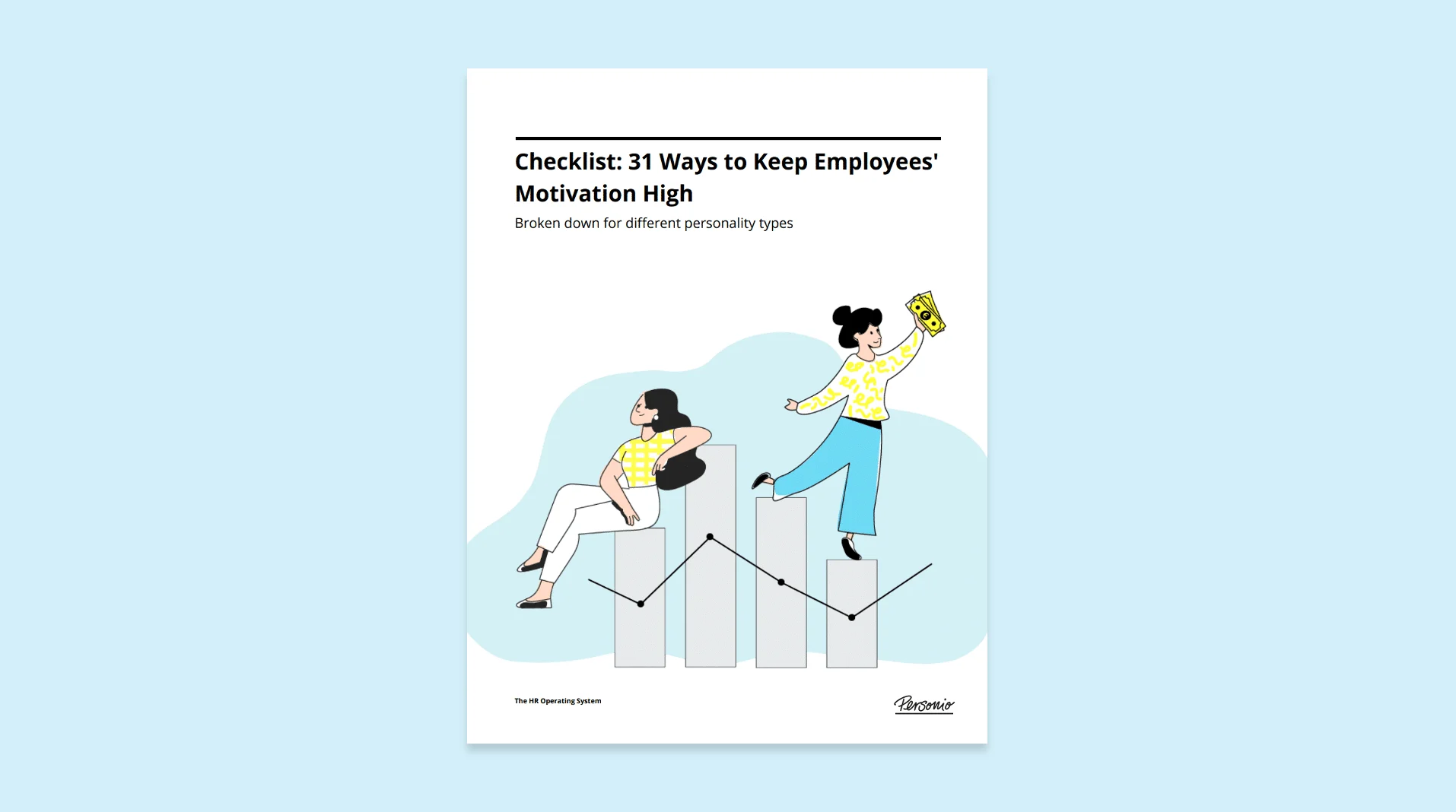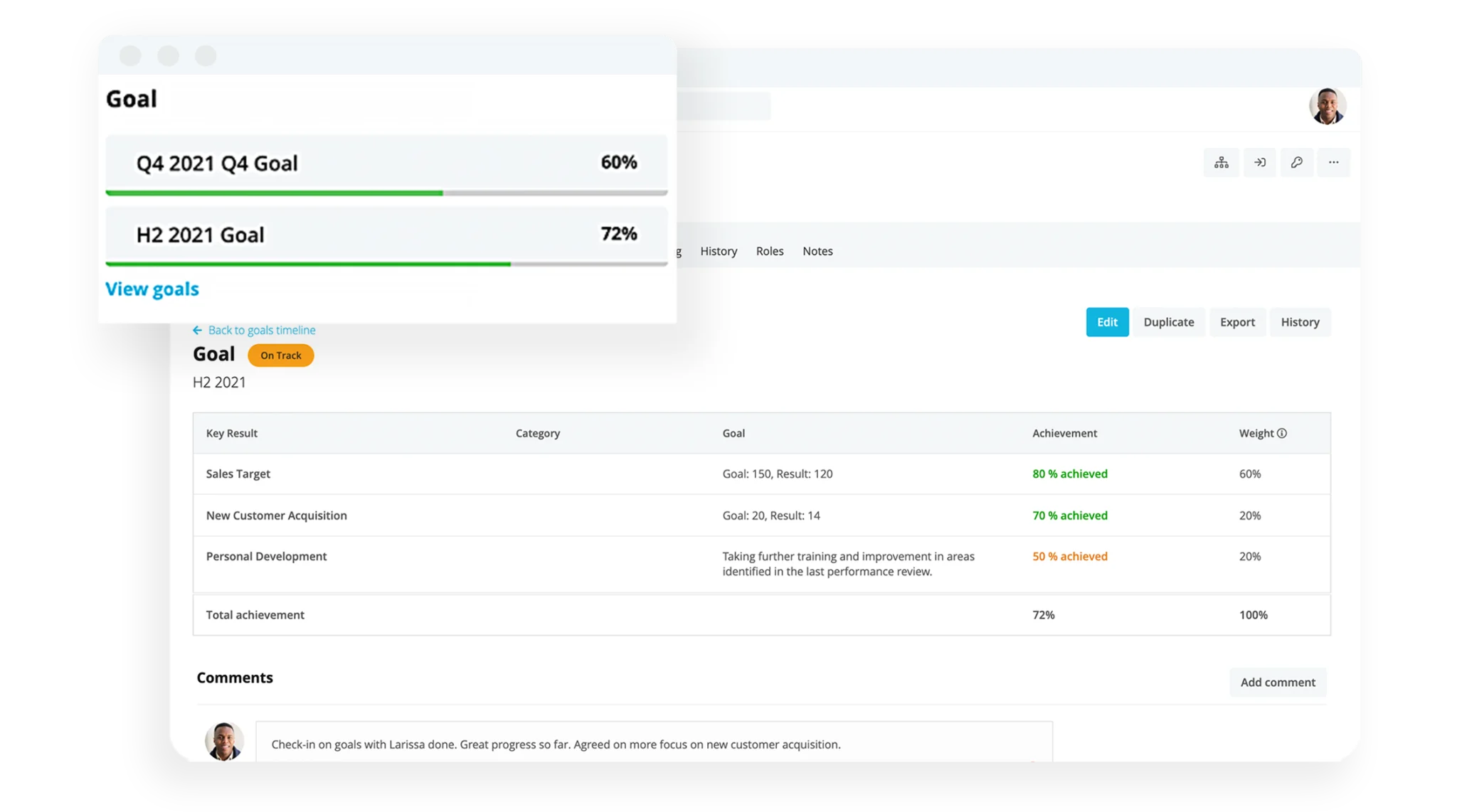Organisational Culture: Meaning, Examples & Development

In this article, we aim to explain organisational culture. We’ll do so by providing a clear definition, offer examples and discuss the critical importance of organisational culture.
Plus, we’re even including the characteristics of a great organisational culture and how you can create a high-performing culture for your teams today.
Key Facts
Organisational culture affects the workplace and how employees interact with one another.
A good organisational culture uplifts its employees and boosts employee retention.
Organisations should keep ‘cultural fit’ in mind at every stage of the hiring process.
What Is Organisational Culture?
Organisational culture, also known as company culture, is the beliefs, principles and practices that guide employees’ behaviour at work. In short, organisational culture is the overall attitude and ‘way of being’ in a workplace. For example, an organisation that prioritises feedback might have a feedback-focused culture that creates a safe space for everyone to learn and grow.
Organisational Culture Examples
These three distinct examples of organisational culture show just how diverse it is in practice.
Philanthropic:An organisational culture that prioritises philanthropy might emphasise giving back to the community. The organisation could reflect those values by offering paid days to volunteer. The organisation might also donate a percentage of its profits to local charities or causes.
Growth-centric: If an organisation has a culture centred around personal, professional and company growth, it might have learning and development initiatives in place. This emphasis on a personal level could include training and educational courses to further employee development.
Passion-forward: This might look like an emphasis on people doing what they love at work. An organisation could support this by creating a culture where management listens to all ideas. This keeps innovation flowing at every level.
The Importance of Organisational Culture
Organisational culture sets a precedent for what an employee can expect at work, both for their own behaviour and conduct with others. With these spoken and unspoken guidelines, new hires quickly learn what’s acceptable and unacceptable in the workplace.
In an era of higher turnover, good organisational culture becomes more important than ever. The 2022 CIPD Good Work Index reports that roughly three in five British employees (aged 18–54) said they moved jobs in the last year.
And 47 per cent of the British employees that anticipate quitting their job in the next year cited job dissatisfaction. If an organisation has a positive organisational culture where everyone feels supported and valued, this can lower staff turnover.
Characteristics of a Great Organisational Culture
While every organisation has unique traits, there are several key characteristics reflected amongst top-performing organisations.
Compatibility:An organisation that prioritises compatibility can achieve a stronger organisational culture because everyone works as one. With all departments on the same page, there’s less confusion as all players move in the same direction and work toward the same goals.
Admiration: An organisation that celebrates its employees’ wins often has a better company culture, with employees enjoying increased job satisfaction. Managers can do this for team members through weekly email shout-outs, regular feedback and team-building exercises, among other strategies.
Confidence: For any organisation to succeed, you need to have trust. If there’s a culture of trust and transparency, then there’s often better communication, leading to a supportive and successful working environment.
Achievement: An organisation with a high motivation to perform often creates a more successful business. A culture of achievement, therefore, can be a powerful way to reach company goals.
Durability: A resilient culture helps employees manage changes as they come, an especially important trait in roles with many moving parts. A strong culture solves problems together and doesn’t let minor setbacks derail progress.
Partnership: Community and teamwork require strong partnerships within your organisation. It takes a village, and a strong emphasis on collaboration can lead to less stress, more problem-solving and better outcomes.
Honesty: Honesty is critical to an effective culture where everyone feels supported and can express themselves with ease. With a culture of honesty, people are more likely to come forward with mistakes or speak their minds without fear of backlash.
Creativity: Creativity leads to more innovation, better problem-solving and the ability to face challenges with a sense of curiosity. Encouraging creativity can reduce stagnation and keep people passionate about their work.
Support: Providing the psychological safety needed to take calculated risks is key for an organisation that wants to excel. This idea of psychological safety involves managers celebrating bold choices regardless of the outcome.
How To Create a High-performing Organisational Culture
To create a high-performing organisational culture, here are some basic steps you can encourage team leads to follow…
Start With ‘Co-Worker Culture’
Culture should be a priority from the very beginning. You can do this by hiring for culture – asking interview questions based on organisational cultural values. For instance, if your organisational culture prioritises kind communication, ask applicants about their communication style.
You can also include a section on culture in the job description, describing what would make someone a good cultural fit. Then for new hires, you can reiterate the organisation’s values during the training and onboarding process.
It’s important to keep in mind, though, that diversity of thought and character make organisations successful, so don’t keep people in a box. Hiring for the right cultural fit is about walking that fine line between looking at the individual and the collective.
Uplift Employees
Listen to your employees’ wants and needs. You should encourage management to host check-ins with their employees to find out their aspirations within the organisation and their career goals. When people feel valued at work and secure in their future at a company, it can go a long way in terms of engagement and employee retention.
Promote Teamwork
A famous African proverb states, ‘If you want to go fast, go alone; if you want to go far, go together.’ Teamwork is the backbone of business success, so it’s important that team members are encouraged to collaborate to get the job done. With so many moving parts and departments involved, people should feel comfortable communicating with one another or speaking up when they have a question. You can promote teamwork by hosting team bonding events inside or outside the workplace.
Set the Right Example
Team leaders should lead by example. Make sure management is well-trained on organisational culture so they can properly represent the organisation. You can encourage them to set the standard for how employees should act, so employees can look to them when mirroring leadership behaviours or making decisions.
Emphasise Wellbeing
When employees feel supported mentally and physically, this can impact how satisfied they feel at a job. The organisation can promote well-being by offering mental health days, counselling services and an open environment to discuss workplace stress.
Though these services once seemed like perks, they’re much more sought after now. This emphasis on well-being promoted upfront in the culture of an organisation can lead to happier team members and higher productivity.
Ask For Feedback
Make employees feel valued and like they’re a part of something greater by asking for their thoughts on a project, on fringe benefits or on the company as a whole. You can collect the feedback anonymously with an online survey or a physical suggestion box, or set up open office hours, so employees can walk in.
People want to feel that they have a voice within an organisation, and the best way to improve the culture is to keep the door open to change.
Different Types of Company Culture
Four types of company culture include:
Clan culture
Adhocracy culture
Hierarchy culture
Market culture
Clan culture predominantly emphasises teamwork, adhocracy culture promotes daring innovation, hierarchy culture is a typical top-down management style and market culture is based on the sector that the organisation serves.
While these are the four main types of company culture, organisations can exist within a spectrum and not limit themselves to one type of culture.
FAQ
What Is Organisational Culture?
Organisational culture is the beliefs and practices of an organisation that guide employee behaviour. Learn more here.
What Are Some Organisational Culture Examples?
An example of organisational culture is a culture centred around giving back to the community in the work that’s accomplished and within the organisation.
What Is a Good Organisational Culture?
A good organisational culture usually exhibits characteristics of compatibility, admiration, confidence, achievement, durability, partnership, honesty, creativity, and support.
Why Is Organisational Culture Important?
It’s important to have good organisational culture because it sets the standard for how people should interact in the workplace, and organisations with a better organisational culture usually have a lower turnover rate.
Improve Your Organisational Culture
Organisational culture exists within a workplace, whether or not it’s intentional. It’s important to take charge of company culture. By examining your organisation’s culture, considering the steps above, and researching what makes a great culture, you can keep employees motivated and satisfied at work. For additional research, check out Personio’s Human Resources Lexicon, where you’ll find similar articles detailing other important HR subjects, like a guide to a great corporate culture.
Personio makes HR processes simple. Book your free demo to learn how Personio can help you manage everything in one place.
Disclaimer
We would like to inform you that the contents of our website (including any legal contributions) are for non-binding informational purposes only and does not in any way constitute legal advice. The content of this information cannot and is not intended to replace individual and binding legal advice from e.g. a lawyer that addresses your specific situation. In this respect, all information provided is without guarantee of correctness, completeness and up-to-dateness.


